Sebastian Cox's "urban rustic" kitchen for DeVol features sawn and woven timber
British designer-craftsman Sebastian Cox has designed a kitchen for English brand DeVol that features rough-sawn timber and panels of woven beech.
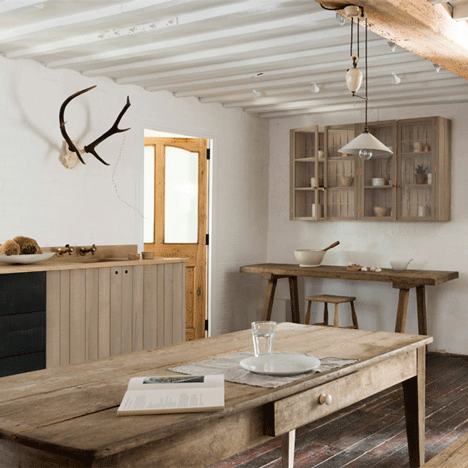
The Sebastian Cox Kitchen is built of sustainably grown British timber, with solid oak work surfaces and doors in raw ash and beech.
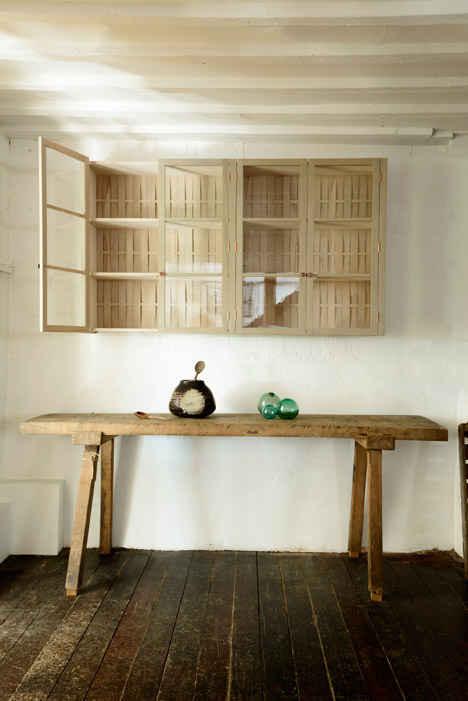
"We have come to think of this look as Urban Rustic," said DeVol founder Paul O'Leary. "It brings a little bit of woodland into the city, with some style.”
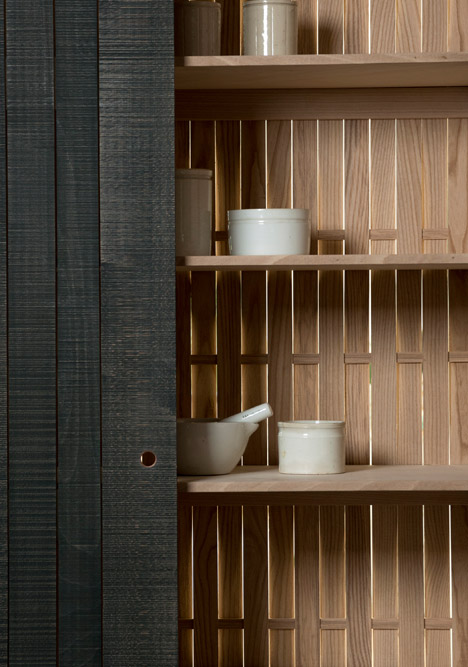
Woven coppiced-beech panels - a typical Cox touch - are used on the backs of some of the cabinets, but O'Leary said the designer had to compromise for practical reasons.
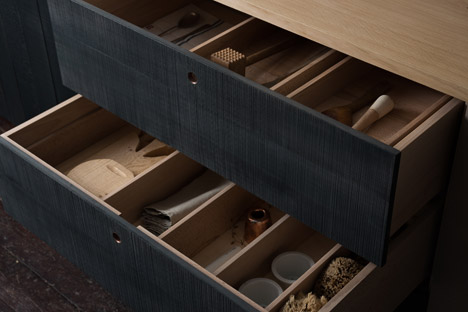
"It just had to have some woven coppiced panels, but there is a conflict of practicality and taste here," said O'Leary. "We know our clients and some things are just too much of a stretch away from their comfort zone."
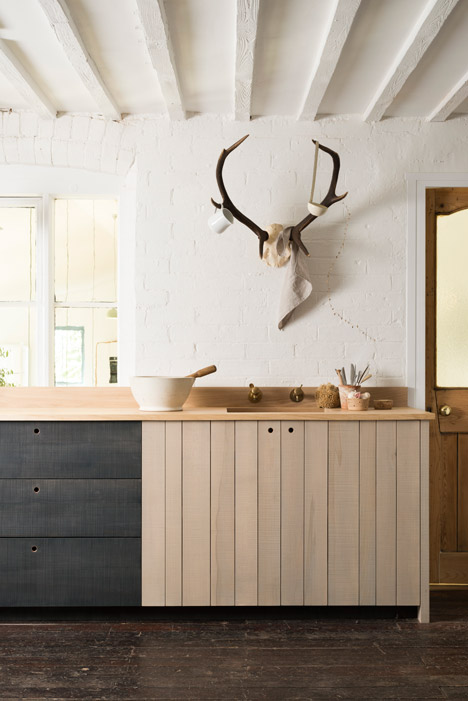
The drawers and sink unit are opened using round copper-lined holes, while the cupboards have small wooden knobs made from matching wood. Work surfaces are cut from solid pieces of oak.
"We've created something that feels clean, simple and light but is brimming with subtle texture to keep the choice of material front of mind," said Cox. "It is immaculately made with really charming details; the doors use very beautiful sliding dovetails that are visible on the inside."
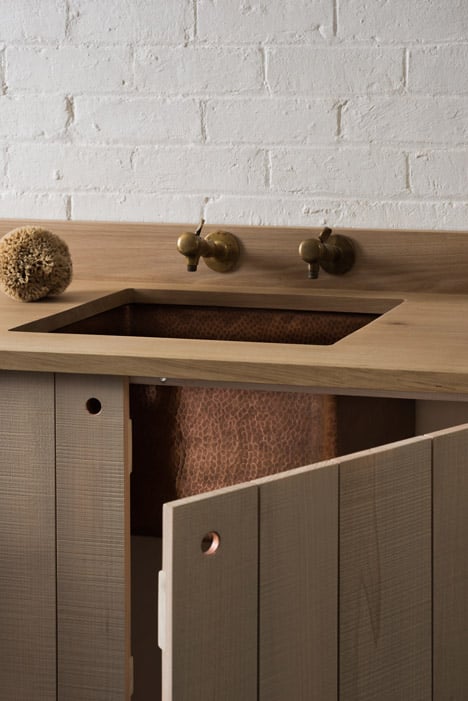
The carcasses of the units – which include a triple pan drawer, a sink cabinet, a wall cupboard with glazed doors and a wide pantry cupboard – are built from birch plywood. Door and drawer fronts are available either with a natural or dyed blue-black finish.
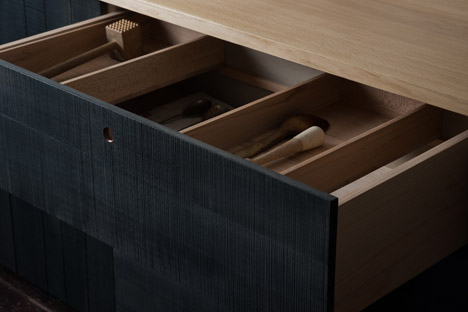
Sebastian Cox is one of the leading young designers in Britain's burgeoning craft movement, which champions the use of traditional techniques and materials in design.
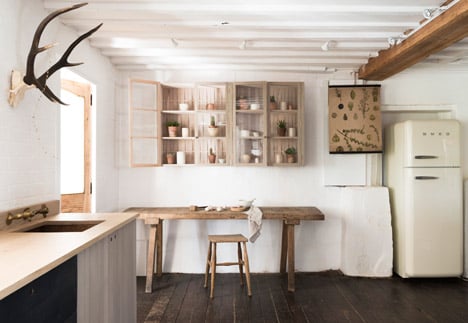
He is known for using coppiced wood – a traditional method of woodland management that involves cutting down young tree stems.
Related content: see all our stories about Sebastian Cox
In 2014 he used coppiced hazel wood, which he harvests himself, to create a full furniture range, and worked with Lorna Singleton – one of only four remaining experts in the UK in a wood-weaving technique known as swilling – to form a collection of products from strips of coppiced oak.
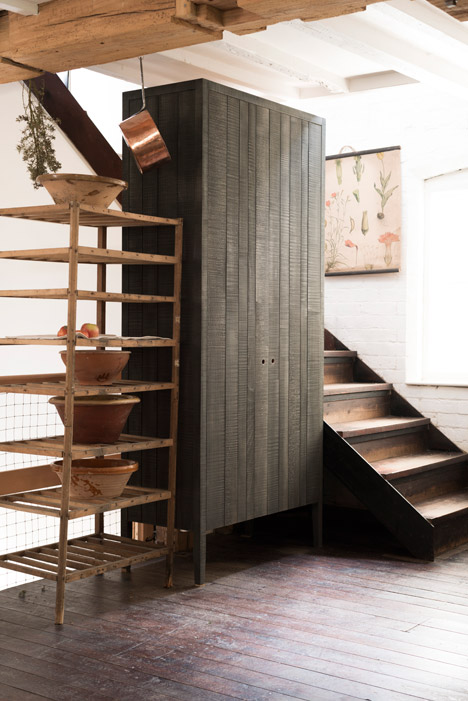
In a 2014 interview with Dezeen, Cox explained that his interest in crafts like coppicing and swilling was not sentimental, but about exploring new opportunities within old methods.
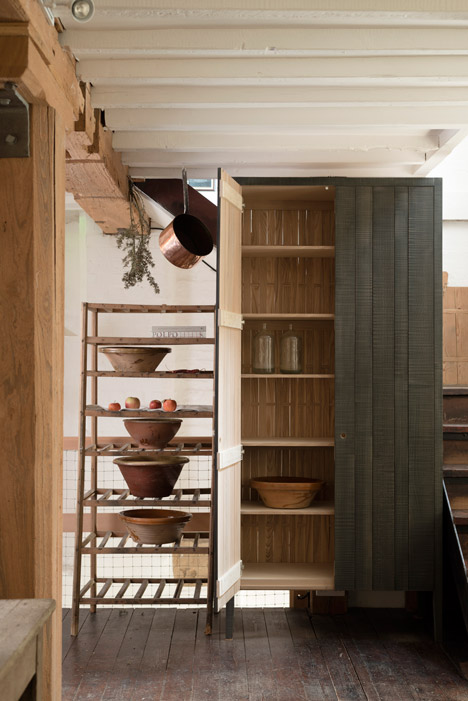
"I'm not being sentimental, or nostalgic and sad, about the idea that these skills will be lost if not passed on," Cox told Dezeen at the time.
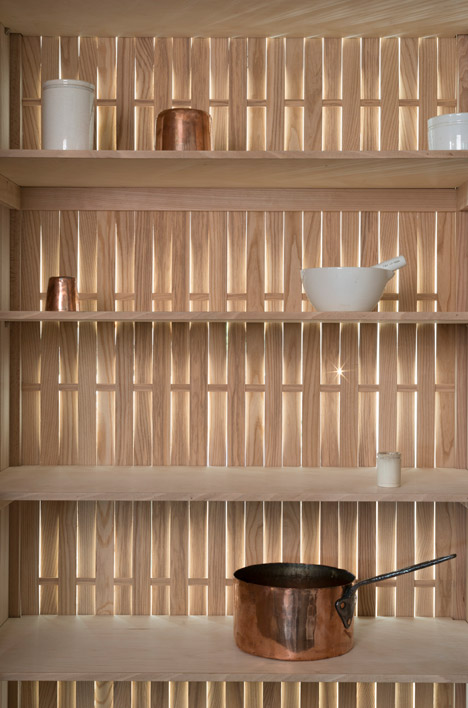
"I get excited about the prospect of finding a new – to me, or to contemporary design – set of materials or techniques to learn and draw inspiration from."

"If we can develop a product that possesses subtle evidence of craft, then I believe it resonates with a customer's primitive maker urges," he added. "As a result the customer will enjoy that thing all the more, and everyone has enjoyed keeping it out of landfill for longer."